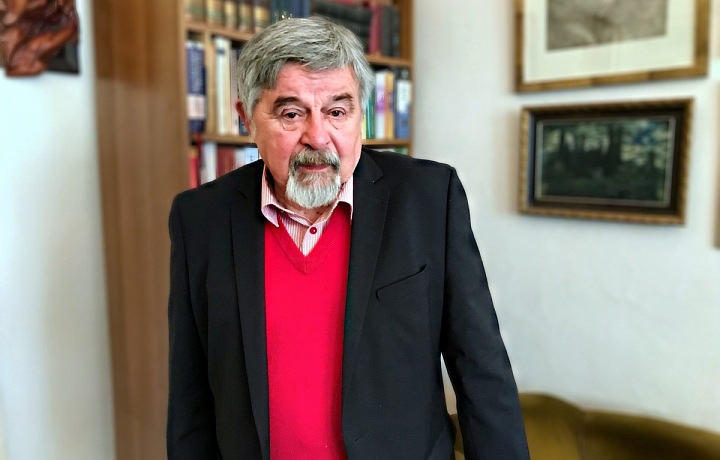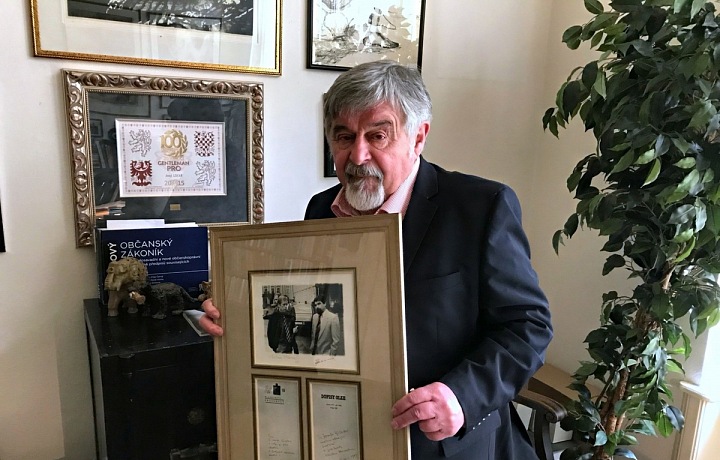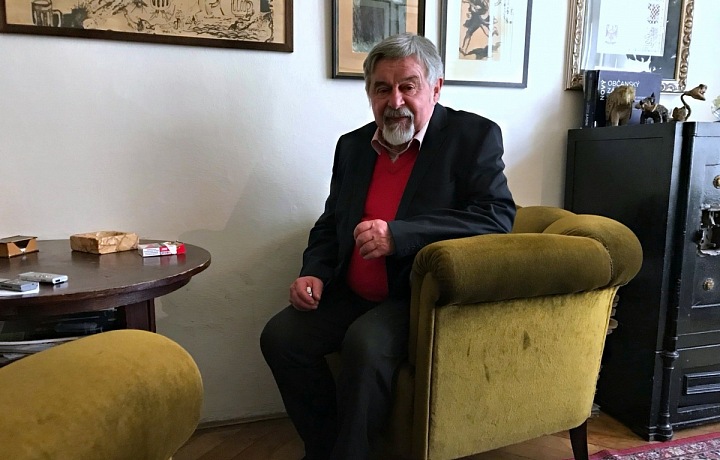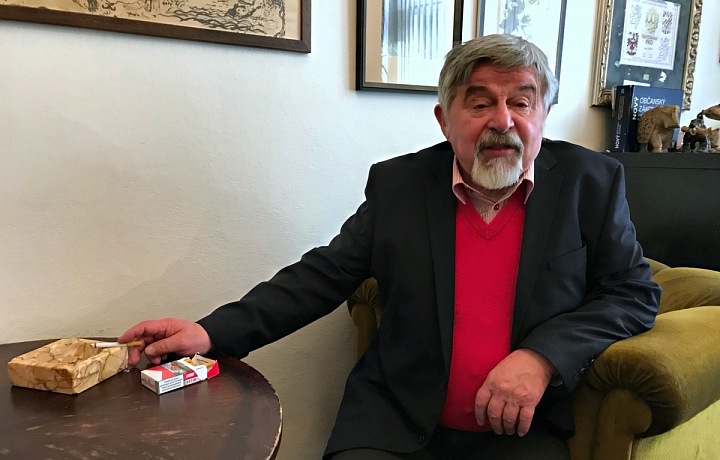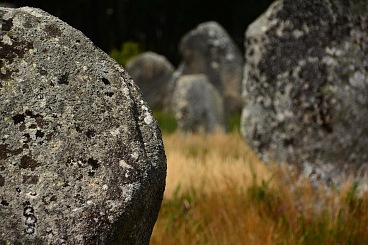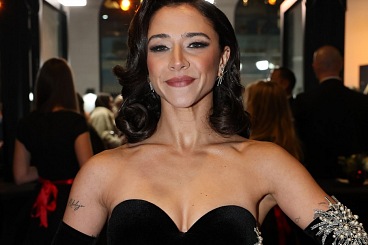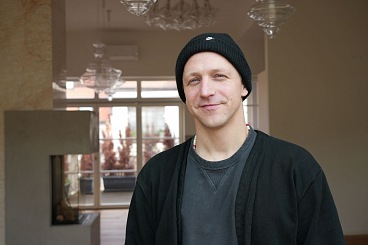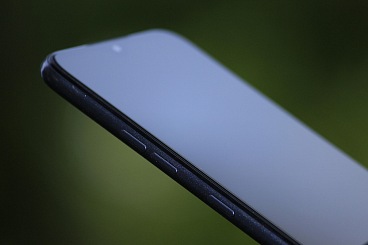Fast confession - Attorney Josef Lžičař: I take the tears of an actress with a grain of salt
This is the man the mighty and the famous turn to when they get in trouble. Josef Lžičař has already defended a wide spectrum of names - President Václav Havel, Prime Minister Petr Nečas, actress Jiřina Bohdalová, host Karel Voříšek and the notorious Qatari Prince Hamid bin Abdal Sání, who was prosecuted for sexual abuse of girls. Perhaps that is why some call him "the devil's advocate". How does this passionate smoker live, how does he recall famous cases and why he is he still working in his 70s? All this and more will be revealed in his interview for Luxury Prague Life.
Mr. Lžičař, you have been practising law for over fifty years. Is there anything that can still surprise you?
Undoubtedly. It is always an unpleasant surprise when I am at trial, and the judge in charge of the process behaves in a way that is a clear violation of the Code of Penal Procedure. Recently, I have experienced a situation where the defendant expressed himself in a written form - perhaps more than is the acceptable norm - and the judge said she would not read the statements at all. Sometimes I am also surprised that the court automatically takes anything the prosecution has written at face value, even though it is not entirely consistent with the proof.
A long time ago, my tutor told me a nursery rhyme: „Water flowing without friction, charge always leads to conviction.“ It reflected the prosecutor's strong position in criminal proceedings at that time; his word was considered the truth of God. It is a fact that in the 1950s, given the monstrosity of the previous regime, it was not justice itself, but the prosecutor, who was to blame. He was in charge of the state of the investigation, he controlled the police, and at that time, the court received a processed file and the prosecutor was the master of the dispute. Naturally, most people were afraid of the prosecutor's attitude, I noticed it especially in the countryside, where the clients would say: "Well, doctor, the court is one thing... But what about the prosecutor?" That subconscious fear of the prosecutor was very real in those days.
Old-timers will surely recall how courtrooms used to look before. There was a court senate, the prosecutor's desk was located in the same plane, and the lawyer was seated on the other side. We have always been twenty to thirty centimeters lower, and the difference has not been removed until 1990. At present, the situation has changed again, as the prosecutor, now attorney general, is now a party in the process, and the court should observe and decide objectively.
Does it ever happen to you that a client tells you the truth about what he's done and then lies in court? And, as a lawyer, you have to keep silence…
Right, I can't disclose that, attorney’s confidentiality applies here. And if he tells me what happened, and then he lies, I should alert him to the risks. In addition, as a defense lawyer, I am able to judge whether it will be proven or not. Also, one is relieved of the mitigating circumstance of confessing that he has assisted in clarifying, repenting. Most accused try to downplay their guilt and seek excuses. There is a difference between defending violent crimes and economic crimes. In case of economic ones, papers and assessments are often decisive. In case of violent acts, they might try to pull the self defense card. And then it's up to the court whether they believe it or not.
You have also defended politicians who were perceived negatively by the media and the public at a certain time, such as Prime Minister Petr Nečas. How does the fact that the public opinion isn’t favorable affect your relationship with the client or the lawsuit?
The court is impartial and independent, so it should not take public opinion into account at all. It's called the people's voice, the voice of God, but that's not true. Because public opinion is often very cruel and incapable of understanding a number of events. After 1989, the general consensus became that whatever had happened during the previous regime was bad, and that all of them were criminals. I have also defended Prime Minister Štrougal twice (Lubomír Štrougal, former communist minister and prime minister, ed. note) and the public opinion was not favorable.
But the courts were deeply just back then, because they assessed the case and he was exonerated twice. He was being blamed of things that he could not have committed at all, and his position, especially in the 1960s, was not evaluated positively. Prior to being removed from office by President Novotný, he did a great deal of work regarding police officers and in relation to state security authorities. His role as Home Affairs Minister was positive.
Does it ever happen to you that people call you out on defending "bastards", asking if your conscience is clear?
(laughs) That happens very often, especially when I come to Moravia to my home village, where they’ll tell me: "You defended this or that person? Such a bastard! We saw it on the TV, all that he’d done.” And the fact is, one comes to realize there is a certain schizophrenia in the attorney’s position, because he cannot simply identify with his clients, his duty is to defend them.
Everyone has the right to a defense - it has been a significant right since earlier times, since the Declaration of Human Rights and the Charter of Rights and Freedoms. People usually see an attorney as someone who defends evil, but I can say that it’s more than that. I ’m not defending evil, I’m defending the person. Do you think it's worse when I defend someone who has committed a crime? Is it better when an attorney represents a woman undergoing a divorce, who didn’t do anything to make the marriage fall apart, and who was being mistreated by her husband? And is the attorney, who defends the guy who used to beat up that woman, a worse person? You have to break away from that way of thinking.
But how to explain that to people?
If possible, it’s necessary to explain them that it is actually a profession like any other. Take for example the position of a physician, who cures sexually transmitted diseases and treats a patient who’s already been there five times before and who is a threat to other people due to his disease. Someone might also say, "Why does the doctor keep helping him, he's an evildoer, going around and infecting other people..." But it's just a profession and a mission like any other.
In the first moment, a person who has been accused of a crime is always alone, and the whole machinery of state power is working against them. That is why this needs to be balanced out and everyone should have a person who is professionally proficient to help and collect circumstances that weaken his/her guilt. You won’t always meet a person who is evil by nature and has it written in their genes. I’ve once defended a man who was prosecuted for murder and bodily harm and seemed quite "evil and aggressive". And I was completely touched by the fact that, while in custody, he kept worrying about who was going to take care of the cats that used to come to his door and that he was feeding every day. That was his main concern - finding someone who would take over his function.
You have also defended a number of celebrities, such as Jiřina Bohdalová, Dara Rolins… What is it like to get to know these people from the other side?
And not just the two personalities you’ve mentioned, I have also defended several television hosts and other people… It is extremely interesting and informative. Their view of the world as well. I don’t mean to offend, but these people often perceive the world differently than an ordinary person. Mrs. Bohdalová, for example, that was a personality protection dispute, and I am glad we succeeded, because it was thwarting the public opinion on her.
I don't want to disparage or downplay it, but do you sometimes see actresses being angry, crying or otherwise expressing emotions?
Well, I didn't notice any such thing in case of Mrs. Bohdalová, she was very angry about what was being written about her. But you have to take it with a grain of salt, because I'm not such an expert, to be able to tell whether someone’s tears are a true expression of their nature, or just a test of their vocation and skill. In criminal matters, and I’m not speaking only about celebrities now, it happens quite often that people feel regret and start crying, when they have commited something awful. And sometimes you can see such an outburst of truth... When it comes to celebrities, I always take it with a grain of salt, thinking it might be an exaggeration, an act. It doesn't always have to be real.
And in case of politicians?
Politicians are mostly convinced about their truth, which makes it difficult, they don’t manifest emotions quite as much. I appreciated, for example, Václav Havel's speech in both criminal proceedings, when he was prosecuted for subversion of the republic and later for incitement. He was always prepared and made valid comments…
On the wall behind me, there are two statements by Václav Havel about my work. In the first one, he wrote: "Thanks for the great work, even though it was, unfortunately, in vain." And in 1989 he wrote, "Yours gratefully and friendly." As for the subversion prosecution, I don't think he was particularly involved, but he didn't want to break up the group of people he was a part of. I am speaking about the dissidents who stood trial - Jiří Dienstbier, Václav Benda, Petr Uhl, Dana Němcová, Otka Bednářová… And he didn’t tell the truth about his participation in their activities, because he was a team player. But such was the atmosphere in those days, the previous regime was trying to isolate these people from society, even though it wasn’t a large group of people. They were the Chartists, and later on some of them evolved into dissidents who, on a larger or smaller scale, drew attention to deficiencies in society.
When you think about Havel, how did he operate or react in the battle against the state moloch? Was he annoyed, or did tend to joke?
He was always joking. But he was also extremely thorough, when he wanted to express his opinion. He reworked his statements several times, everything made perfect sense. And despite everything, his final speeches, in which he criticized the court for its point of view, were preserved, and they are extremely enlightening today. I have to admit that he was more readable to me in those statements than in some of his theatre plays; I didn’t really understand those. He did manage to capture some things well, others were less comprehensible.
How did you get along on a personal level? Was it just a client - attorney relationship?
We got along well. That’s also why, in 1989, when he knew he would be elected president, he wanted me to join him as the office manager, “office” today. I wasn’t very excited about it, but on Christmas Eve he managed to persuade me, wherefore I had 180 days of unpaid leave as an attorney from 29th December 1989 to 29th June 1990. But I wanted and planned to return to advocacy as soon as July 1, 1990, because advocacy turned out to be one of the first professions that became private. But I stayed at the Castle for about 6 or 8 days longer in order to prepare the second presidential election.
The original agreement was that I would remain until the first free elections and then leave. I am not cut out to be a manager and be in charge of some larger units. At that time, the castle had over 600 employees and six or eight unions, so I was glad to only have been there for such a short time.
Do you have any interesting memories from that time?
For example, the accessibility of the Castle or the deer-park in Lány were addressed. Václav Havel was aware that under the previous regime, the Castle used to be somewhat isolated and he felt that it should be open to the public. But then the conclusion was made that if people were to be let in, everything would be destroyed - destroying things is in human nature, after all.
I think it was during the May Liberation Celebrations, when military kitchens were allowed in the castle courtyard and people could get snacks, sausages, beer, and so on. And then it was discovered that the sandstone in the castle courtyard soaks up the oil and becomes impossible to clean. After that, they closed it even for cars, otherwise it would have been destroyed.
I see you’ve been holding a cigarette throughout the entire inteview. You probably smoke a lot, don't you?
I do smoke a lot and it’s unlikely that I’ll ever stop smoking. I have
an extremely kind head physician, a lung specialist, who is opposed to smoking, but she told me that if she forbade me to smoke at this age, I probably wouldn’t be able to handle it mentally. I have to rely on some kind of force majeure to decide how long I’ll be here.
But I'll put it differently: My brother was a doctor and a non-smoker, he undoubtedly lived a healthier life than me, yet he died of colon cancer. And if I were to compare myself to him, I'd have to have been dead for ages by now... It's probably written in the stars, who of us will survive and who won’t. I have a weak will when it comes to smoking. Although there’s been less of it recently, because smoking is prohibited in all buildings where trials take place, and there is no time to run out and have a cigarette during a break.
Do you have any other sins or quirks?
Well, I don't have any old-age quirks yet and regarding sins... Not that I know of. I don’t say no to alcohol, but I always drink very moderately. And I’ve never been driving after drinking.
And what are your hobbies?
I can relax best when I'm in the woods. The tranquility in the forest fills me with a sense of satisfaction. And walking the dog - we’ve always had a dog with my wife.
You’re working a lot now, but I can imagine that you used to work even harder in the past. Was it at the expense of your family?
It could have be at the expense of my family, especially when I was going to work for six or seven hours even on Saturdays and for four hours on Sundays. I also used to work late into the night quite often. But now I have toned it down a lot, I don’t want to overdo it and I tend to avoid, for example, processes outside of Prague.
And when are you going you retire, so that you could rest? Or is it not even an option for you anymore?
There are days when I think to myself that I could quit and retire because I have a huge library and I look forward to getting through it. In recent years, I have mostly devoted myself to factography and history. But I don't want to retire yet, as long as I am able to work… It’s still my life.
You know you might not have the time anymore...
Well, I’ve been thinking about that too... (laughs) But then again, my parents as well as my ancestors lived very long lives, so I could still be here for a while. But of course we don't know the day or the hour, it may happen anytime, poof - and you’re gone.
When you look at the cases that have been dragging on for years from the point of view of an attorney… The case of David Rath, Lukáš Nečasný and others. How do you feel about it?
It is an error of the justice system, when a case drags on. Some things may be prolonged deliberately, but when something drags on for more than 8 years... I myself have a client who is already going through his ninth or tenth year in criminal proceedings, and I tell myself that this is not the purpose of criminal proceedings. The more time has passed since the crime was committed, the less danger to society remains. The punishment should follow as soon as possible after a crime has been committed, these prolonged things are no good.
I believe that the findings of the Constitutional Court and the European Court of Human Rights are not being respected either, where the length of the proceedings is also mentioned, and there was one decision claiming that, if they exceed six years, it is excessive duration. But the worst thing is when the process drags on and the decisions are vastly different - conviction follows exoneration, and so on. The Nečesaný case can be taken as an example. This is not normal and it certainly doesn’t inspire confidence in justice in the citizens.
What’s your opinion on the case of the pardoned Jiří Kajínek?
Based on the knowledge I have, I'm not sure he was guilty of the double murder. He may have become a tool for settling the score of two shady clans that were operating in Pilsen and competing for influence back then. For me, it is incomprehensible, if I were a double murderer, that the third person who testified later (Vojtěch Pokoš, ed. note) didn’t get a mercy shot. That is inconsistent, in my opinion. There was considerable doubt and little certainty, but I have to respect the court's decision, of course. It also feels wrong to me that Kájínek has become a celebrity.
So do you think President Zeman's mercy was a solution?
As some theorists like to say, the mercy of the president is a privilege carried over from the Middle Ages. And if the law stipulates that the president can grant mercy, then I believe he should grant it without attempting to justify it. Once he starts justifying it, he gets into a dead end street.
Are you for the death penalty?
I have always been against the death penalty, I even wrote an essay on the topic at one point. But eventually I started to change my mind. There are offenders who should probably be done away with, since our society is currently unable to isolate them completely. Similarly, people who were involved in mass killings, such as Norway's Anders Breivik, do not deserve mercy. These people bring huge costs to society, due to having to be guarded.
I know that not everyone may agree with this opinion, but some people are so dangerous to society that it would not be wrong to dispose of them in exceptional cases, cut them out of society like an ulcer.

